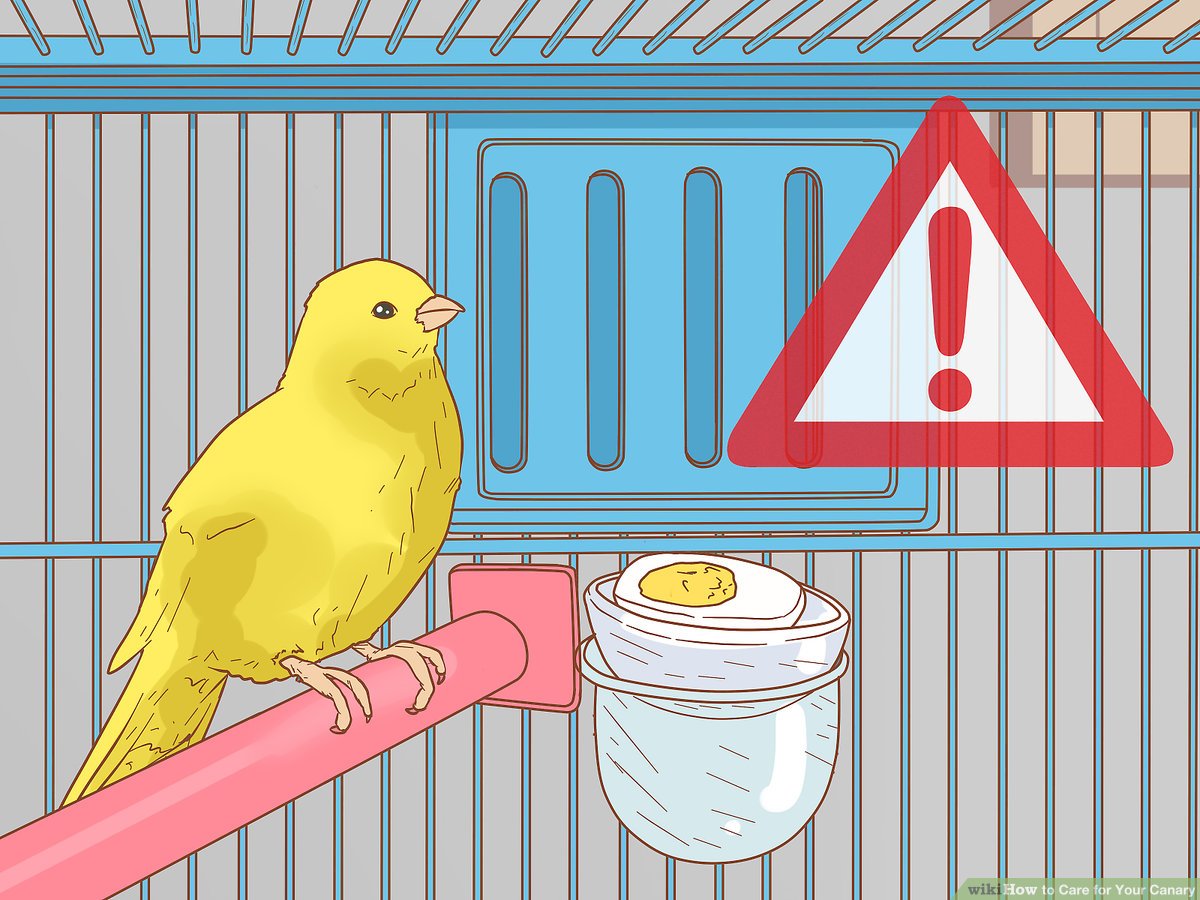Caring for a canary is simple, but it needs constant monitoring to make sure everything is ok and that our beloved pet stays healthy and vital in its small habitat.
Then we’ll explain all the care you need and what your canary needs, keep reading this Animal Expert article to make sure you’re doing everything right.
- The canary cage should be spacious and large.
- Preferably wide.
- So that the bird can exercise properly.
- The cage is your habitat.
- Your home.
- So it is important that it is adequate and pleasant.
Some breeders and especially those engaged in singing contests often offer very small cages to enhance their singing. In our opinion, this is a very bad practice because this behavior generates stress and discomfort in small birds, thus reducing their life expectancy among other negative factors.
With the cage, you must buy plastic hangers. Instead of buying plastic, you can also think about acquiring natural branches as they show off your nails, exercise your paws and offer a more comfortable position for canaries.
If not for sale, they can be made with branches of fruit trees, even untreated or having been varnished. Also, it is important to know that you should not place the hangers or the food container under other hangers, otherwise the faeces will fall on them.
Failure to maintain regular hygiene in your canary cage can cause serious illness in the future. To do this, clean the cage thoroughly and with a natural non-harmful disinfectant at least once a week. You should also clean branches, feeders, fountains, bottom, swings and clean the cage net.
Food scraps, such as fruits and vegetables, which can rot can also be removed, this should be done more often. It is also necessary to change all the food in the cage once a week, because although they are seeds, they can be damaged.
Taking care of the canary’s diet is essential for your well-being, physical development and health. To do this, we offer blends, fruits and vegetables, calcium, water and supplements to the right extent and variety.
As with other animals, our canary may suffer from an infestation of mites or small parasites. To do this, it is recommended to go to the veterinarian to check if our canary suffers from parasites and that in some situations the common spray that we find for sale can be used for him. It is important not to apply products that are unaware of their effectiveness or use.
To avoid parasites, apply a drop of dog pipette to the canary once every two to three months and offer regular baths and an observation of their plumage.
Sometimes, people with little experience with birds confuse moulting or any change of plumage with parasites, for this reason it is recommended to always go to the veterinarian.
You must have your canary in a quiet and relaxed environment where you can count on some natural light.In summer, you can place it on the properly protected balcony with a small shade space.You should avoid air currents as they are very harmful to birds that can quickly suffer a cold.
The canary includes the process of daylight and dark hours as a measure to initiate moulting or reproduction. Therefore, although you live in the countryside, you must have a fixed minimum time at which you can perform this process.
At dusk, when you see that you are starting to relax and climb to the highest branch cover it, if it is a version it will suffice to cover the top of the cage a little.
Canary Alp plants usually occur late in summer and most of the time, when they live inside the house, they usually have an altered, prolonged or late planting.
Try not to change the natural photoperiod of the canaries, as well as temperature or other environmental conditions. Follow stability to keep your canary happy.
If you would like to read articles similar to, we recommend that you visit our Basic Care section.

